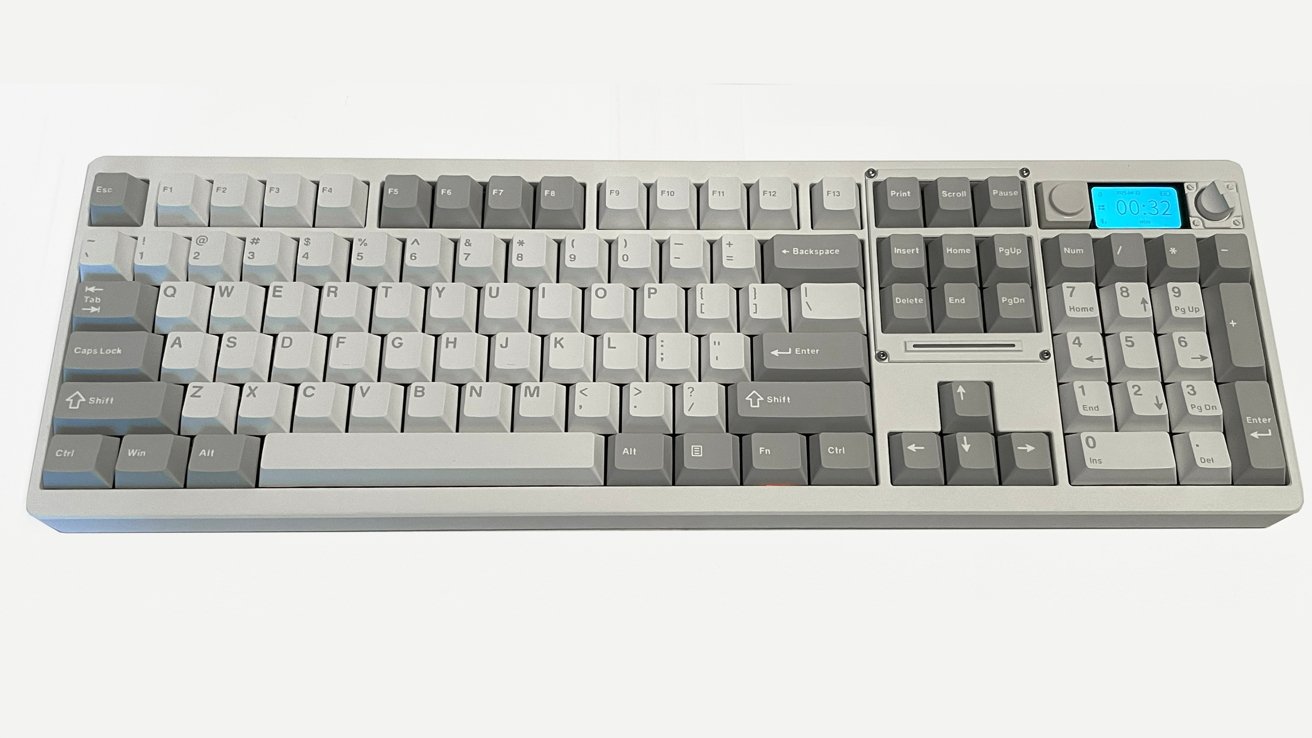Epomaker Galaxy 68 Review: A Mechanical Keyboard That Falls Short for Mac Users
Epomaker, known for its extensive range of mechanical keyboards, introduces the Galaxy 68—a 65% wireless mechanical keyboard designed for both macOS and Windows users. While it boasts a compact design and solid build, the Galaxy 68’s lack of dedicated macOS support and customization options may leave Mac users seeking alternatives.
Unboxing and First Impressions
The Galaxy 68 arrives well-packaged, including the keyboard, two spare switches, a dual-purpose keycap and switch puller, a USB-A to USB-C cable, a 2.4GHz wireless receiver, and a manual. Despite its advertised compatibility with macOS and Windows, the absence of alternate Mac-specific keycaps is noticeable. This omission suggests a missed opportunity to cater fully to Mac users.
Specifications
– Layout: 65% ANSI US, QWERTY
– Keys: 67 keys plus one knob
– Battery: 6,000mAh (two 3,000mAh batteries)
– Connectivity: 2.4GHz wireless, Bluetooth, USB wired
– Dimensions: 346.3 x 112.7 x 32mm
– Weight: 2.7 lbs
– Materials: Powder-coated aluminum case, PC flex-cut plate
– Switches: Lubed mechanical switches, 5-pin linear, hot-swappable
– Lighting: Dynamic RGB backlight, logo light, and side light
– Compatibility: Mac, Windows, Android, Linux, Xbox
Design and Build Quality
The Galaxy 68’s compact 65% layout offers a reduced desktop footprint, appealing to users seeking a minimalist setup. Its powder-coated aluminum case exudes an industrial aesthetic, available in black with green accents or white with black accents. The keyboard lacks adjustable feet but includes gripper pads for stability. A USB-C port and power switch are located at the back center. The RGB backlighting is vibrant, featuring south-facing LEDs and an illuminated Epomaker logo.
Customization and Software
Epomaker equips the Galaxy 68 with proprietary Wisteria 5-pin linear switches, compatible with both 3-pin and 5-pin switches for customization. Basic functions like switching between macOS and Windows modes, media controls, and RGB lighting presets are accessible via function key combinations. However, the absence of dedicated macOS or Windows software for deeper customization is a significant drawback. Users must rely on a JSON file and the VIA website for advanced configurations—a process that can be cumbersome and time-consuming compared to native software solutions.
Performance and User Experience
During testing, the Galaxy 68 performed reliably across Bluetooth, USB wired, and 2.4GHz connections. The typing experience is solid, with the lubed mechanical switches providing a distinct thok sound. The keyboard’s weight prevents it from sliding during use. However, the lack of dedicated macOS support and the need for manual customization through VIA may deter Mac users seeking a more seamless experience.
Conclusion
The Epomaker Galaxy 68 is a well-built mechanical keyboard with a compact design and customizable features. However, its lack of dedicated macOS support, absence of Mac-specific keycaps, and reliance on third-party software for customization make it less appealing to Mac users. At a retail price of $99, there are other options in the market that offer better integration and user experience for the macOS ecosystem.
Pros:
– Excellent build quality
– Compact design
– Customizable switches
Cons:
– Lack of dedicated macOS support
– No Mac-specific keycaps included
– Cumbersome customization process
Rating: 2.5 out of 5



